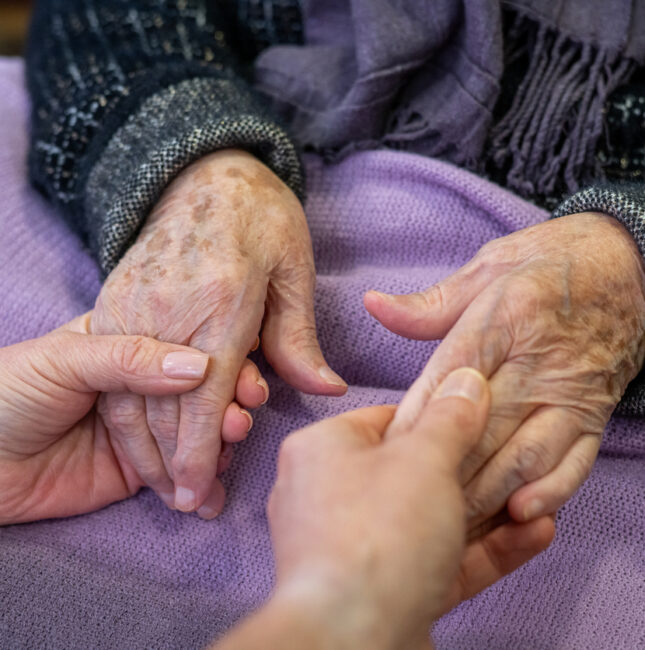A new home and a new beginning
May 15, 2025
For many years, Trent had lived in community housing with his two sons, 22 year old Alex and 15 year old Marcus. When it came to parenting, Trent had all the right intentions, but his chronic isolation, depression and substance use saw him spiral into a difficult place.
“The family were extremely isolated, and their community housing property was dilapidated and required significant repairs,” says Intensive Family Preservation (IFP) Lead, Brigid. “They presented as suppressed, depressed and not engaged with the community. The living conditions were not acceptable, their personal hygiene was very poor, and Alex was doing the bulk of the parenting for his younger brother, Marcus.”
The family was referred to CatholicCare’s IFP program due to child protection concerns, the condition of the home, hygiene issues and Marcus’ limited school attendance.
“Marcus spent most of his days at home. He didn’t have any peers, he wasn’t socialising or engaging with the community, and he had poor sleep practices,” Brigid explains. “Alex had been out of school for a few years, he wasn’t engaged with an employment service, and he had no desire to get out into the community.”
Brigid says that while their father, Trent had issues with alcohol dependency, there were no addiction issues or red flags for the boys, which is what allowed them to “fly under the radar” for so long. “They weren’t the squeaky wheel, so they weren’t getting support,” Brigid says.
The housing block they lived in was notorious for drugs, alcohol and domestic violence, which meant they never felt safe to sleep at night. “They’d had windows broken, people knocking on the door at night, and Police asking them for statements about incidents at neighbours’ homes so it wasn’t a family friendly environment,” Brigid says.
Upon CatholicCare’s involvement, the first goal was to initiate a housing transfer for the family to a more suitable property. Following lots of advocacy, they were accepted into a community housing complex that is integrated with supports. “Tenants who live in the complex are supported to connect with education, training and employment opportunities in the area, and to transition to housing independence. It really is an ideal situation for Trent and his boys,” Brigid says.
CatholicCare supported the family throughout the whole relocation process, which involved extensive rubbish removal, a deep clean and the provision of new furniture and belongings.
Since moving into their new home, Trent has joined community groups, abstained from alcohol and sought support services. Marcus is now enrolled in TAFE, he is spending more time outdoors and he is slowly engaging in the community. Alex has gained independence with an apartment of his own across the hall from his dad and brother, which allows them to maintain regular contact.
Our IFP team worked alongside Trent to build his capacity to support his sons with their routines, their hygiene needs and their contribution to daily chores. They were also supported to recognise the importance of community engagement and reaching out for supports when they need it.
“I can’t emphasise enough how much improved their living situation is now,” Brigid says. “To be surrounded by support services within walking distance is what they needed. Trent is engaging with chaplaincy services and community events, and he is in a good headspace.”
The journey of Trent and his family is testament to the power of advocacy and understanding the unique needs of a family.
CatholicCare and other stakeholders collaborated to highlight the family’s lack of historical supports, and this ultimately led to approval of the housing transfer and a hopeful new beginning.
More news stories like this one
Sarah blossoms at Clarke Road
Find out how the Click & Connect group at the Disability Hub Waitara boosted Sarah's confidence and tech skills over time.
Read MoreIntroducing Crossroad Companions end of life service
When you receive a terminal diagnosis, life can suddenly feel uncertain and overwhelming. Questions arise, roles change, and you may find yourself moving from one medical team to the next. We're here to help.
Read MoreWorld Day of Social Justice – injustice isn’t accidental
World Day of Social Justice isn’t about slogans or good intentions. It’s about facing an uncomfortable truth - the systems we live within do not work equally for everyone, and pretending otherwise costs people their dignity, safety and hope.
Read More


